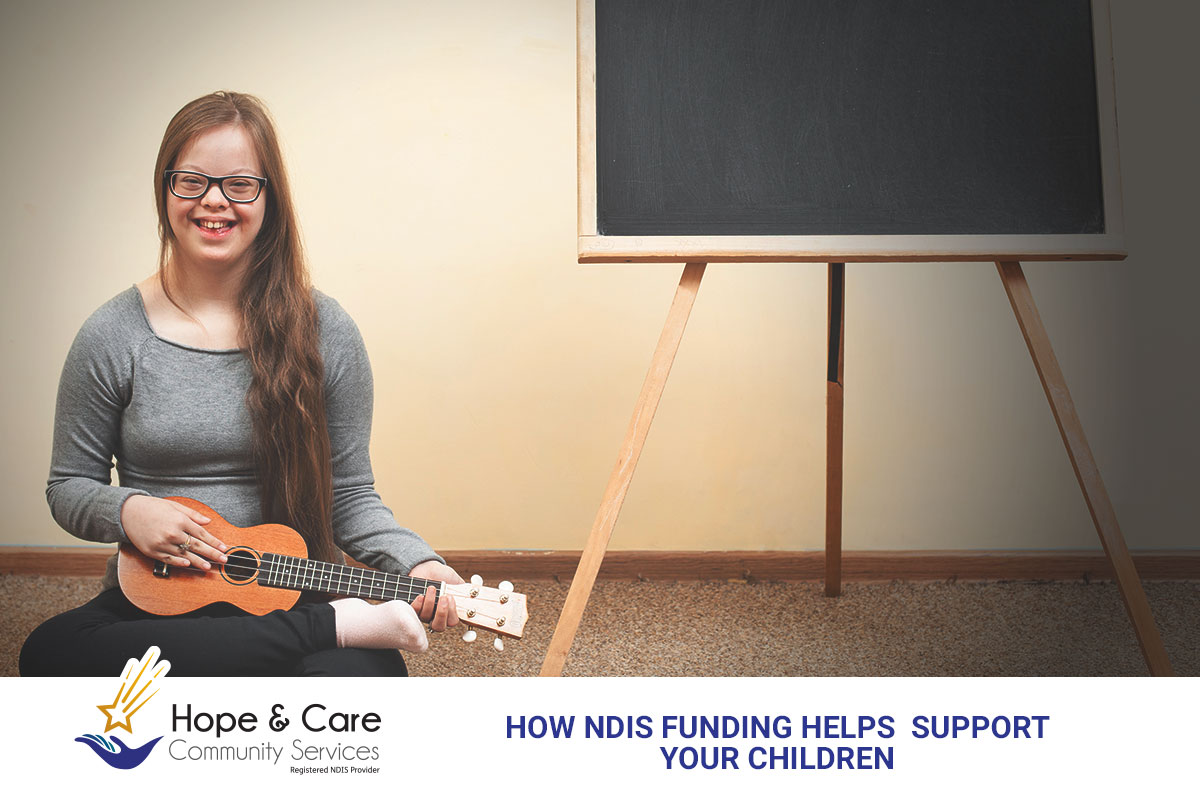
Caring for a child with a disability presents unique challenges. Every parent wants their child to grow, learn, and thrive to the best of their ability. The National Disability Insurance Scheme (NDIS) helps families access essential supports to secure a bright future for their children. Whether it’s therapy, educational aids, or assistance with everyday activities, NDIS funding opens doors to services and resources that empower children with disabilities.
In this article, we’ll explore how NDIS funding can assist in supporting your child, ensuring they receive the necessary care and opportunities to reach their full potential.
Understanding NDIS Supports for Children
The NDIS provides tailored funding to meet the specific needs of each individual, including children. This funding aims to improve their quality of life by promoting independence, social participation, and skill development. Recognising that every child’s journey is unique, NDIS offers flexible support that adapts to their needs and goals.
Some key support categories offered through the NDIS for children include:
- Therapies and Early Intervention: This includes speech therapy, occupational therapy, physiotherapy, and psychology services. Early intervention is crucial because it helps children develop key skills in communication, mobility, and social interactions. By addressing these areas early on, NDIS ensures children get the most out of developmental windows crucial to their progress.
- Assistive Technology: NDIS funding also covers tools and equipment that support participation in everyday activities. This could include mobility aids, communication devices, or adaptive equipment. For instance, a child who is non-verbal can benefit greatly from a communication device, which allows them to express their needs and interact with others more effectively.
- Support Workers: For children who need help with personal care, meal preparation, or attending daily activities, NDIS funding can cover the cost of hiring support workers. These workers play a key role in assisting children with tasks, building their independence, and ensuring they remain engaged in activities that promote development.
- Community Participation: NDIS funding encourages children to take part in social and recreational activities. These activities not only help children build confidence but also provide opportunities for them to develop essential social skills and engage with their peers.
These supports are designed not only to assist with the child’s immediate needs but also to foster long-term growth, independence, and community involvement.
NDIS and Educational Support for Children
Education is a vital part of a child’s development. The NDIS plays an important role in ensuring that children with disabilities have the necessary supports to fully participate in school. By providing educational aids, equipment, and additional supports, NDIS helps create equal opportunities for all children to succeed academically.
Learning Aids and Equipment
Many children with disabilities require specialised equipment or learning aids to effectively engage in school activities. NDIS funding can be used to purchase or access:
- Communication devices: These tools are invaluable for children with speech or language difficulties. They help children express themselves, participate in class discussions, and interact with their peers and teachers.
- Mobility aids: For children with mobility issues, devices such as wheelchairs or walkers help them move around the school environment independently. This enables them to participate in activities without needing constant assistance.
- Specialised furniture: Items like adjustable desks, chairs, or sensory tools ensure that children with physical or sensory disabilities are comfortable and able to focus during lessons. Specialised furniture creates an inclusive environment where the child can engage in learning on equal footing with their peers.
With NDIS funding, parents can ensure their children have access to the equipment they need to thrive in school.
Therapy Supports in School Settings
Many children benefit from therapeutic support to help them succeed in school. NDIS funding can cover therapies delivered in educational settings or during school hours. Examples of these therapies include:
- Occupational therapy: This helps children develop fine motor skills and cognitive abilities. These skills are important for tasks like writing, drawing, and using classroom tools. Occupational therapy also improves focus, problem-solving, and hand-eye coordination, which are critical for academic success.
- Speech therapy: Speech therapy is beneficial for children with communication challenges. It helps them develop language skills, improve social interactions, and participate in classroom activities more confidently.
- Behavioural support: Positive Behaviour Support (PBS) strategies are designed to manage behavioural challenges that may affect a child’s learning. This type of support helps children better cope with their emotions and behaviours, allowing them to engage more fully in learning and social activities.
These therapies help children not only improve academically but also develop the confidence and skills to interact more effectively with their peers and teachers.
Support with Transitioning to School
For many children, especially those with disabilities, transitioning to school or moving to a new school can be overwhelming. NDIS funding can assist in making this transition smoother by providing:
- Support workers or aides: In many cases, children with disabilities benefit from additional support in the classroom. NDIS funding can cover the cost of hiring aides who assist the child with daily tasks and ensure they can participate fully in school activities.
- Individualised Education Programs (IEPs): NDIS support coordinators work with schools and families to create tailored education plans that address the child’s specific learning needs and goals. These programs help set clear expectations and ensure that teachers are aware of the child’s strengths and areas where additional support is needed.
Through these supports, children can transition more easily into the school environment, ensuring they have the tools and resources to succeed.
Early Intervention: The Key to Long-Term Success
Early intervention is critical when supporting children with disabilities. By providing therapies and services as early as possible, the NDIS helps children develop key skills during their formative years. Early access to these supports can make a significant difference in a child’s long-term development.
Benefits of Early Intervention
Early intervention has several key benefits, including:
- Improved cognitive and social skills: Early therapies help children develop essential skills in communication, social interaction, and problem-solving. These are the building blocks for success later in life.
- Increased independence: Children who receive early intervention often develop the self-care and mobility skills they need to be more independent as they grow older.
- Better long-term outcomes: Research shows that early intervention leads to better outcomes in education, employment, and overall quality of life. Children who receive early support are more likely to achieve developmental milestones and thrive in future environments.
With NDIS funding, families can access the early intervention services their children need, giving them the best possible start in life.
How Families Can Use NDIS Funding
Families have flexibility in how they use their NDIS funding to support their child’s development. Here are some of the ways NDIS funding can be applied:
- Hiring specialised therapists: Families can use NDIS funding to schedule regular sessions with speech pathologists, occupational therapists, or psychologists, depending on their child’s needs.
- Purchasing assistive technology: NDIS funding can be used to buy assistive devices such as wheelchairs, hearing aids, or communication tools. These devices are tailored to meet the specific needs of each child, ensuring they have the support necessary to engage in daily activities.
- Accessing respite care: Families can also use NDIS funding to cover the cost of respite care. This provides temporary relief for caregivers, giving them time to rest while ensuring their child continues to receive appropriate care.
By working with NDIS planners and support coordinators, families can create a plan that suits their child’s unique needs, ensuring they have access to the supports that will benefit them most.
Conclusion: Supporting Your Child’s Growth and Development
NDIS funding offers a wealth of opportunities for children with disabilities. It provides access to therapies, educational tools, and necessary supports that help children thrive. By utilising NDIS funding effectively, families can ensure th
Finally, as Registered Provider, we understand the intricacies of the navigating services on your own. Unlock the full potential of your funding and provide the guidance you need to reach your goals. Feel free to Contact Us to explore how we can assist you on your journey. For instance, the NDIS is there to make a positive difference in your life, and we’re here to help!.
Want to learn more? Read other articles :
- Redefine Independence your own way – with HCCS
- Who’s Who: The Key Terms of Your NDIS Plan
- Foundational Supports: Building Blocks of NDIS Success
HCCS is a registered NDIS provider. Learn more about our services.
♥ We are available in Brisbane! – Our team is just a call away!
